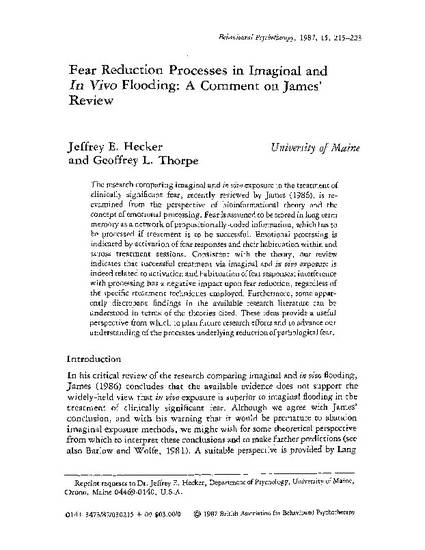
The research comparing imaginal and in vivo exposure in the treatment of clinically significant fear, recently reviewed by James (1986), is reexamined from the perspective of bioinformational theory and the concept of emotional processing. Fear is assumed to be stored in long term memory as a network of propositionally-coded information, which has to be processed if treatment is to be successful. Emotional processing is indicated by activation of fear responses and their habituation within and across treatment sessions. Consistent with the theory, our review indicates that successful treatment via imaginal and in vivo exposure is indeed related to activation and habituation of fear responses; interference with processing has a negative impact upon fear reduction, regardless of the specific treatment techniques employed. Furthermore, some apparently discrepant findings in the available research literature can be understood in terms of the theories cited. These ideas provide a useful perspective from which to plan future research efforts and to advance our understanding of the processes underlying reduction of pathological fear.
Available at: http://works.bepress.com/geoffrey_thorpe/2/
